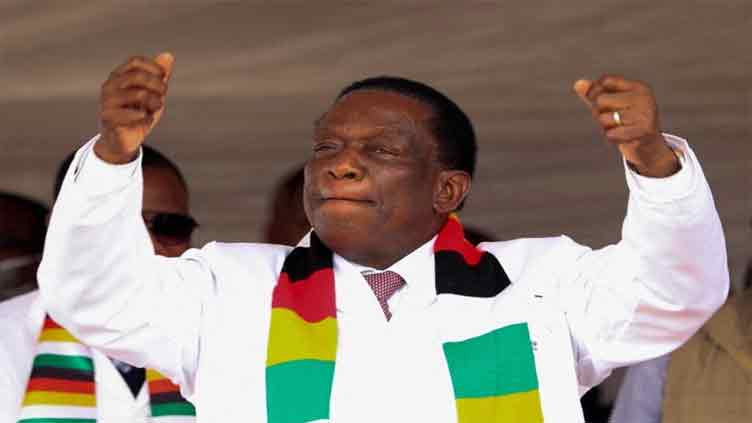In Zimbabwe, a post-Mugabe economic revival remains elusive ahead of vote

Business
African nation has a 101.3pc inflation rate which one of the highest in the world
HARARE (Reuters) – When Zimbabwe's President Emmerson Mnangagwa came to power nearly six years ago after the military toppled long-time ruler Robert Mugabe, he promised to tackle the country's economic woes "head on".
But for many, like 51-year-old widow Regina Ruona, the promised economic revival remains elusive.
After braving a chilly morning to join a long queue at a bank in the capital Harare to withdraw her late husband's pension, a distraught Ruona is told bank notes have run out.
Bank note shortages are a symbol of the Mugabe-era financial ruin and have not been resolved under Mnangagwa, who is seeking a second term in the Aug. 23 general election.
Ruona's late husband's monthly pension of 24,000 Zimbabwe dollars ($5.31) is barely enough to buy, for instance, two kilogrammes of sugar and two litres of cooking oil.
Her predicament is shared by millions of Zimbabweans struggling with rising prices after the Zimbabwe dollar, which was reintroduced in 2019, weakened 85 per cent this year and triggered another round of soaring inflation in a country that has regularly undergone bursts of price increases blamed on decades of economic mismanagement.
At 101.3pc year-on-year in July, Zimbabwe has one of the highest inflation rates in the world, keeping company with the likes of Venezuela, Lebanon and Syria.
"The monthly pension should be in US dollar because the local currency does not buy anything," Ruona said.
Unemployment remains high, with only 30pc of Zimbabweans holding formal jobs.
During working hours, Harare's pool parlours and sports betting halls teem with unemployed youth hoping for instant wins.
"There is nothing to do in the townships so we play pool for a living," said Tendai Mubaiwa, a 33-year-old father of two. "We play three tournaments every week and winners can get up to $250. I am now able to take care of my family."
Independent economist Gift Mugano said Zimbabwe's dire economic conditions could galvanise voters against the ruling party in a manner reminiscent of the 2008 election, when ZANU-PF lost its parliamentary majority for the first time and
Mugabe suffered a first round defeat to Morgan Tsvangirai before retaining power in a run-off marred by violence.
"It is only fair to mark ZANU-PF badly when it comes to the economy," Mugano said. "We thought they had found a formula of how to run an economy, (but) the economy is not working."
A government spokesperson did not immediately respond to requests for comment.
The government has insisted the economy is growing and projects a 6pc expansion this year, more than double the International Monetary Fund and World Bank forecasts.
DEBT WOES
Mnangagwa has played up strides in areas such as infrastructure development, including a government-funded project fixing a 580 kilometre (360.4 miles) road connecting Harare to the main border with major trading partner South Africa.
The government funds such projects as Zimbabwe's access to long-term international capital is blocked by its $14 billion debt owed to foreign lenders including the World Bank and African Development Bank (AfDB). Nearly half of that debt is in arrears.
Zimbabwe has also leaned on Chinese lending for infrastructure projects, including a $1bn 600 megawatt coal-fired power plant expansion to help ease crippling power cuts that have impacted businesses and households.
AfDB president Akinwumi Adesina, who is leading Zimbabwe's bid to restructure its debt, said in May that the restructuring efforts require the support of western governments and largely depend on the upcoming election being free and fair.
Political analysts have warned that Zimbabwe could head for another disputed election, with the opposition being denied state media airtime and some of its rallies being blocked by the police.
Citizens' Coalition for Change leader Nelson Chamisa, Mnangagwa's main challenger, has promised to grow Zimbabwe's economy, fight corruption and end the country's isolation by the west over allegations of human rights abuses and electoral fraud.
Supporters of the ruling party say Chamisa has not explained how he would fund his election promises, including grand infrastructure projects.
($1 = 4517.1359 Zimbabwe dollars)

